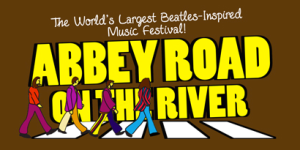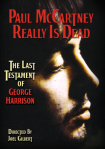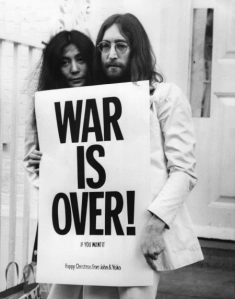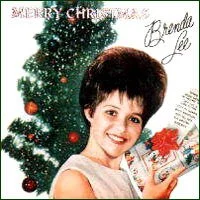This weekend I’ve been attending Abbey Road on the River, a mega-Beatle fest at the Gaylord National Harbor Resort. My wife and I have had a great time; I got to meet Pete Best, the Beatles original drummer, and Ron Campbell, who did the animation for both the Beatles animated series and Yellow Submarine. The tribute bands have been a mix of the good, the bad and the hysterical, but that’s OK, I’m used to bad Beatles imitators (and honestly, my standards are probably unrealistic).
A truly surreal experience, however, was being exposed to the “East Coast Premier” of the DVD PAUL McCARTNEY REALLY IS DEAD – The Last Testament of George Harrison, a 90 minute crock of horse manure, posing as a documentary. We saw it in a room with about 50 people; a steady stream left throughout, and to the credit of those who remained, there was audible laughter at times.
The premise of the film is that George Harrison, after having survived a knife attack in 1999, recorded an audiotape that reveals, in a very detailed narrative, that Paul McCartney really was killed and replaced by a double in 1966, and that this historic audiotape was then mailed to an obscure company named Highway 61 Entertainment, to which Harrison had no previous connection whatsoever. The film offers the voice as George Harrison without any collaborating evidence, and the audio quality, despite it supposedly being from an 11 year-old audiotape, is as clear as if it had been recorded in a studio yesterday. Also, instead of having the amateur, stream of consciousness form that you might expect from a sickbed confession, what we get is a polished, chronological account of a very convoluted, and not very believable, conspiracy to simultaneously cover up (while at the same time revealing), the truth of McCartney’s death.
Since Harrison is supposedly the person relating the series of events (which include the English Secret Service, over a 35 year period, repeatedly threatening to kill the surviving Beatles if they did not maintain the fraud), you would expect that “common knowledge” facts from the history of the band would be accurate – and you would be mistaken.
This George Harrison does not know that: both Rubber Soul and Revolver were released prior to November of 1966; that the Beatles never actually recorded the Capitol release Yesterday and Today, and that the “Butcher Block Cover” for the album was actually released into circulation, and that in any event, it too was released prior to November of 1966. This George doesn’t know that John had divorced Cynthia and married Yoko, and that Paul had married Linda Eastman, months before Abbey Road was released. This George also believes that the Let It Be sessions occurred after the Abbey Road sessions.
There are other logic-defying assertions from this Harrison, such as that a witness to the fatal crash in 1966, after threatening to reveal the truth in 1993, is maimed and reconstructed as – get ready for it – Heather Mills! No matter that Mills was born after November of 1966 (and remember she successfully carried a child to term in 2003, 38 years after supposedly witnessing the crash). The film is full of “you’ve got to be kidding me” moments, which is where the Beatles experts in the audience found the most humor.
One thing I found disturbing was the venom that this George directed at John, the “new” Paul and poor Ringo. The George Harrison narrating this movie is not a very pleasant person, and he makes the other Beatles out to be either deranged or stupid. He also doesn’t sound much like the real George Harrison, and he sometimes lays on the Scouse so thick that it sounds more like parody than mimicry.
What is clear after having sat through this cinematic fiasco is that the director, Joel Gilbert, clearly only has a superficial knowledge of his subject matter, which is curious, since he went to such lengths (and expense, I imagine) to create a movie that claims “insider” access to the individuals and events depicted. It seems to me that if he had allowed even a cursory proofreading of the script by a real Beatles fan, many of the silly errors could have been corrected, which which have made the film, if not plausible, at least not so easily exposed as the fraud it is. His failure to do so reveals Gilbert to be a sloppy movie-maker, who has apparently wasted a lot of someone’s money, and quite possible destroyed whatever standing he may have had in his industry.
In short, PAUL McCARTNEY REALLY IS DEAD – The Last Testament of George Harrison, is a poorly conceived and executed attempt to exploit Beatles fans that will fail because the director couldn’t be bothered to do his homework. As a result, few true fans of the Fab Four will find his work credible, and I suspect that it will soon be relegated to the ash heap of hysterically bad movies. I suppose for this I should actually be grateful.































